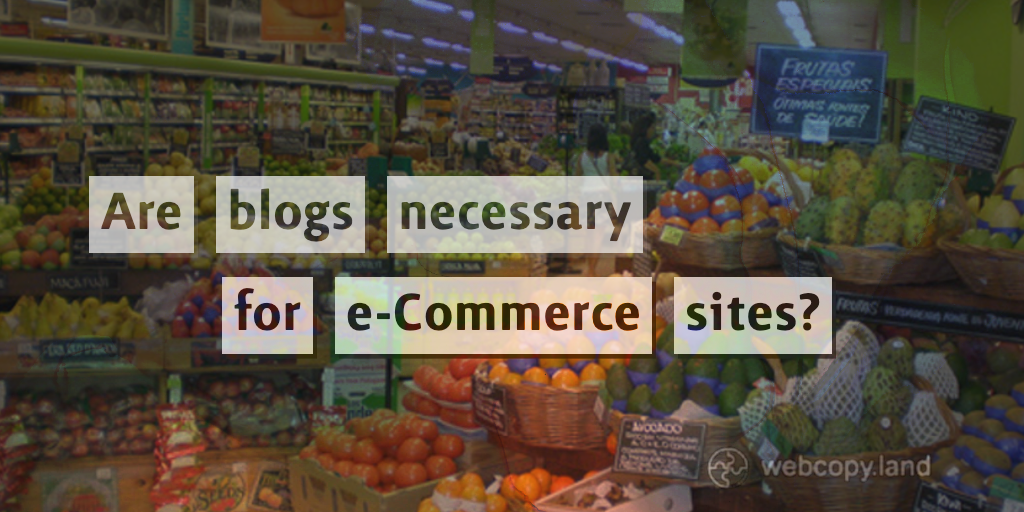Our answer is this: only if you want sustainable long-term organic traffic bringing you massive sales for years to come.
Provided you do it right, of course.
While e-commerce entrepreneurs focus on paid traffic to get sales, blogging can be a more sustainable long-term model for traffic acquisition. You can blog on Shopify or use WordPress with a separate install – the technicalities don’t matter much here.
What can you expect from having a blog on your store?
Numbers don’t lie
First and foremost, 60% of consumers find blog posts valuable for early stages of buying process (data by Ceros.com).
[box type=”info”] In fact, blog posts are more popular for new customers than videos, podcasts, and webinars![/box]
That of course differs from niche to niche, but on average, 6 out of 10 of your customers would want you to have a blog on your online store!
Need more reasons? Read on.
Reasons to add a blog to an e-commerce site:
The effects of having a properly set up blog on your e-commerce store are:
- Sustainable
As a marketing channel, a text blog requires way less maintenance than ad campaigns. While you may need to tweak your ads daily and weekly, your blogging system will last for months.
- Long term
Organic Google traffic takes several months of consistent blogging to build up, but it’s going to last well into the future as well.
- Budget-friendly
Once you have all you content planning, creation, and audit systems in place (we offer professional help with that), the blogging costs for e-commerce come down to several hundred $ per week at most (2-3 blog posts).
A unique benefit – vital for 2022!
An effective blog on your online store domain makes your brand immune to cancellations.
Each channel you have on third-party platforms can disappear overnight because of any random complaint or violation.
Ad accounts get banned and pages get taken down more often than you think, and if large brands have leverage against that, smaller e-commerce companies are very vulnerable.
Getting cancelled and losing your marketing channels is a real danger, and your blog would be a hedge against that. Blogs give you 100% control, they are hosted on your site, and only YOU determine what goes on them and what does not.
You can have controversial content created to go viral without worrying the brave new world will hunt you down.
How to make an e-Commerce blog work
Your online store blog will work well if you
- plan your content strategy ahead
- audit and adjust it often.
Planning your retailer blog properly means focusing on your customer audience’s interests.
The blog on your e-commerce store is necessary and valuable if it helps solve your customers’ problems and address their challenges – see more on coming up with e-Commerce blog topics.
At the same time your blog posts should not be competing with your product pages or categories (read more do’s and don’ts in this post).
What a blog will not give you
There’s one thing you should not expect from a blog on your online store domain – and that is fast action.
There are exceptions with viral content that gets a proper boost on social media, but normally it takes weeks before the content gets indexed on Google and starts getting impressions.
If you need the fast launch traffic ads are your #1 option, but once the ads stop, the traffic stops – so you should be building your e-commerce store blog on the background.
We have all the services necessary to minimize guesswork and get you into the right direction from the start without overspending. Dozens of e-commerce sites grew their blogs into full-scale sales generation channels with our content planning and blogging audit services.
Get in touch with us today and tell us about your challenges!

Pingback: Retail blogging - what to expect in 2022 (and how to jump on it) - Web Copy Land